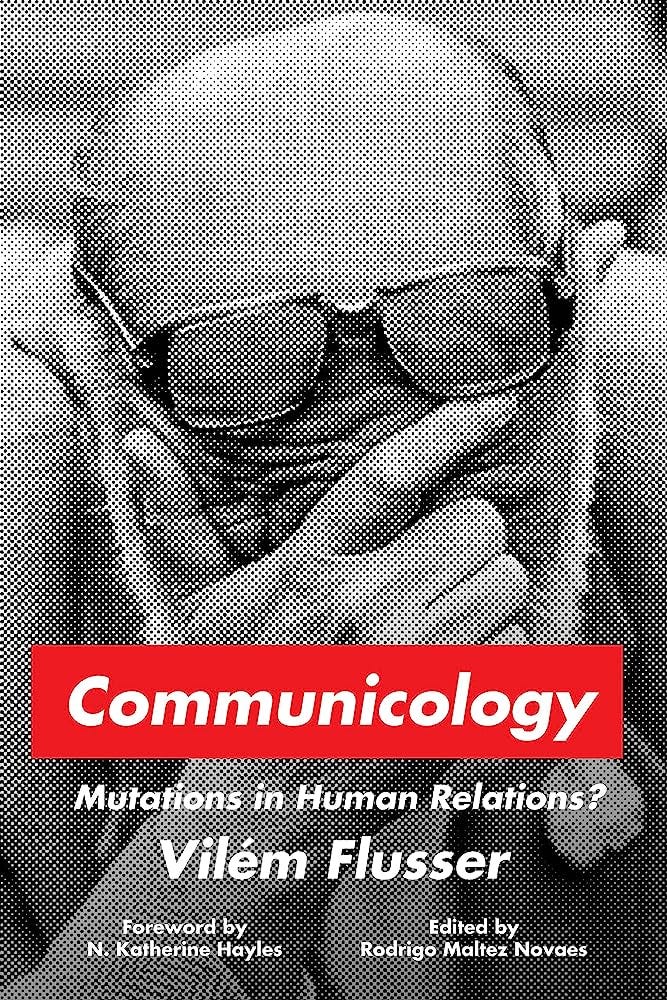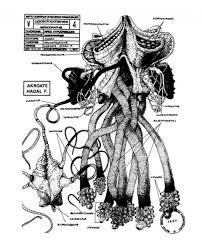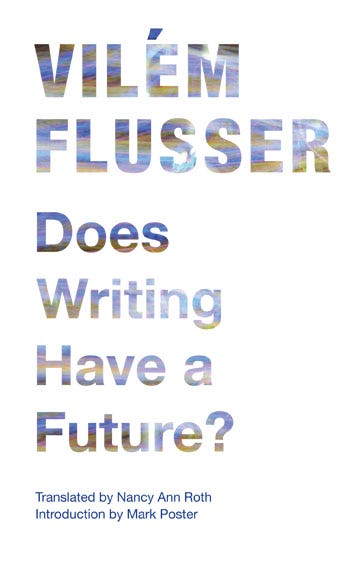When I wrote about Vilém Flusser earlier, some commenters here at Crooked Timber weren’t happy: why am I spouting off about this obscure Czech-Brazilian media theorist?
At first I despaired at the lack of intellectual curiosity, but then I realized that they were right: Vilém Flusser isn’t famous enough to write about, given the inexorable dictates of the attention economy.
So I resolved to make Flusser more famous by aping the blithely bourgeois consumerism of the only newspaper that matters.
Interested in Vilém Flusser but don’t know where to start?
It feels like 2023 is the summer of Flusser! You can’t read anything about the goings-on with the artsy set downtown without encountering terms like the “Flusserian technical image” or “amphitheatrical discourse.” If you want to keep up, you better get reading!
But where to start? We here Pagecutter know that there’s nothing you hate more than reading a book unless you absolutely have to, so we’ve picked the perfect Flusser text for any audience and attention span.
Best Cover: Communicology: Mutations in Human Relations?

If a big part of your artistic/literary practice is reading books in public, on the train or in a bar, furtively glancing to see if anyone is noticing you reading, this is the book for you. The absolute thrill of sighing and telling an inquisitive stranger that it’s “too complicated to explain” has to be experienced to be believed!
It’s also the fullest statement of his media theory, and thus his most immediately important book. Communicology synthesizes ideas he develops in more specialized texts, making it a technical and admittedly difficult read.
But. I think that the main question confronting social science today is “Why does everything feel so weird?” I continue to think that the answer is “the Internet,” but until reading Communicology, I was unable to break down this intuition into useful analytical components. Flusser’s discussion of discourse versus dialogue, of the evolution of codes of communication from image to text to technical image, both puts the internet in historical context and provides a much more specific formulation of the main question of today.
Most Absurd: The History of the Devil

Yes, the fable about the Vampire Squid discussed below is less absurd than Flusser’s second major work, a nominally religious allegory in which he de-moralizes the seven deadly sins and explicates the role that each of them plays in constructing the human condition.
Flusser is a deeply religious thinker. When he escaped the Nazis, he brought with him only two books: a Jewish prayer book and Goethe’s Faust. The History of the Devil is a reading of both of these, refracted through two decades of largely independent reading of canonical Western philosophy.
This is my personal favorite, though not for the faint of heart. The chapter on Wrath is worth the price of admission, adumbrating a novel and poetic philosophy of science. The central contribution of the book, though, is existentialist. As a Czech (really, Praguian) by inclination, Flusser’s existentialism has a distinctive Kafkan timbre. The structure references Wittgenstein’s Tractacus ironically, but the argument is less logical than lyrical. Here are two choice quotes; there are many more in my archives, inquire below.
Nationalism is a sublimated secretion from shriveled testicles, but even so, it periodically manages to provoke an extreme orgasm.
Within society, the Devil seems to struggle against himself. But it is obvious that this is a fake struggle. Greed strengthens envy, and envy strengthens greed, and both have the same aim: to make society real.
Most Fun to Talk About: Vampyroteuthis Infernalis: A Treatise, with a Report by the Institut Scientifique de Recherche Paranaturaliste

This is Flusser’s version of McLuhan and Fiore’s iconic pamphlet The Medium is the Massage. McLuhan was the prophet of cool, and as much as he personally despised contemporary media culture, he knew that the only way to critique it was to ride the wave; hence, The Medium is the Massage, a beautifully designed book of aphorisms condensing the ideas he worked out in detail in Understanding Media.
Steeped in Judeo-Christian thought and attentive to developments in natural science, Flusser’s collaboration with Louis Bec is likewise accessible (for Flusser…) and immediately eye- and mind-catching. The discovery of a deep-sea “vampire squid from hell” in 1905 was the subject of much public attention, and Flusser uses it as a springboard for a kind of phenomenological fable. By imagining what it is like to be a vampire squid, Flusser reveals much of what we take to be objective reality to be physically, historically and socially contingent. Plus it has a lot of badass pataphysical sketches of the vampire squid.

Real Flusser-Head Hours: Groundless

Flusser’s autobiography, written and rewritten in several languages, was published in English for the first time in 2017 by frequent Flusser translator Rodrigo Maltez Novaes. This book is one of the strangest and yet most revealing autobiographies I’ve ever read. The final two-thirds describe his intellectual bromances with members of the Brazilian cultural scene he eventually joined, in such candid detail that showing the drafts to his friends caused more than one of them to have a major break with him.
He spends less time on his childhood and his young adult decision to flee the Nazis than he does talking about how his attempt to embrace Brazilian nature failed because Brazilian nature sucks. (He spends many pages describing how much Brazilian nature sucks.) Still, this is essential reading for understanding his intellectual trajectory. For example, he basically taught himself Spanish in order to be able to read Ortega y Gasset, primarily because of the latter’s exacting prose style. And despite being raised a “bourgeois Marxist” by default as a Praguian intellectual, he is brutally disillusioned by the Stalin-Hitler pact—a disillusionment that Western bourgeois Marxists had the luxury of avoiding.
What little we get the Nazi period is shattering. He describes the decision to leave as tantamount to killing his family, that it was only vulgar self-preservation which drove him to take the unforgivable choice not to stay and be slaughtered. This existentialist survivor’s guilt explains his Groundlessness, the first key step down his intellectual path. It works, insofar as he is able to later in the book describe the German language as the most significant victim of the Holocaust. This is clearly a tortured soul, all the more impressive for remaining alive and vital. We see his embrace of the absurdity of existence as the only alternative to suicide; an inspiration, for anyone, regardless of circumstance.
Most Prescient for 2023: Does Writing Have a Future?

The answer, obviously, is no. And now that we have LLMs upending centuries-old institutions premised on the technology of writing, we can appreciate just how right Flusser was. The central thrust of this book is included in Communicology, but the specifics of the writing case are explored in more detail here.
The big question for Flusser, the author of both Does Writing Have a Future? and dozens of other books, is…what’s the deal? To understand him, we must accept his embrace of dialectical tension, the generative inconclusiveness of any argument. From The History of the Devil:
The struggle shall never end and the embrace shall never be
realized. However, we cannot even say that this process is over.
No one has won and no one has been defeated. We cannot even
say that the drama of our minds has come to a draw. Neither
God, nor the Devil has disappeared. We cannot even say if
they continue to exist, or if they ever existed. We cannot even
distinguish between them. The only thing left is this stage of
decided indecision. Could this be the overcoming of sadness
and sloth? Could this be damnation? Could this be salvation?
It is no use asking. It is no use writing. Therefore we continue
to write. Scribere necesse est, vivere non est. [Writing is necessary, living is not.]
{ 5 comments }
Sumana Harihareswara 07.03.23 at 6:11 pm
I enjoyed the playfulness of this piece. :-)
both sides do it 07.03.23 at 11:32 pm
+1
afeman 07.05.23 at 12:44 pm
I am reminded of nobody so much as de Selby:
https://en.wikipedia.org/wiki/De_Selby
Ray Vinmad 07.07.23 at 6:50 pm
I am getting every one of these books I can afford.
You have completely sold me. I keep looking for books that talk about–for lack of a better word–the weirdness. How do you find them though?
My only problem is when I get enthusiastic and try to talk to others in the ‘ya gotta read this book’ it generally fails. But now I can point them here.
DrSteveCruel 07.10.23 at 11:51 pm
I’m a long time lurker, and very intermittent commenter, and I just want to pop up and say that I have very much enjoyed your posts here on CT, and am going back and exploring your other writings. Thank you for sharing!
Comments on this entry are closed.